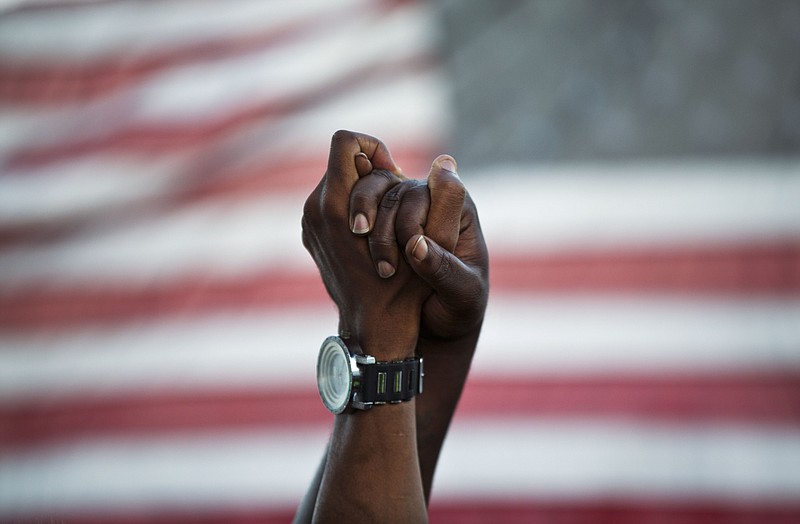View other columns by David Cook
[Note to readers: this column is meant to be read aloud, preferably in the presence of someone who makes your blood boil. During the next few months, such a person shouldn't be so hard to find.]
We are not enemies.
You and I.
Not.
Enemies.
Yes, it may seem that way. American political culture has become crackerjack-good at enemy-making. Most days, we wake up and play out our token and tired roles - I'm Democrat, you're a Republican, she's a bleeding heart, he's a gun nut - goaded on by a Big Media that loves a hot mess of trouble and division. Conflict sells; lots of us are buying.
So automatically, reflexively, without thinking, we line up on opposite sides of the American street. You see me - my NPR coffee mug, my "Co-exist" bumper sticker - and pick out all the things you don't like. I see you - your NRA hat, your old Reagan shirt - and do the same.
And the enemy-making continues.
No, we're not violent toward one another, at least, not most days. But within our hearts, where violence always originates, we harbor hostility and aggression. Most behavior is habit, and we have traded in the golden habits of patience, humility and respect for the louder models of anger, yelling and bad-blood rudeness.
Don't you feel it, too? It's as if American culture has become one big soap opera, and offstage, the writer keeps instructing the stage director: Get them angry. Angrier. Angrier!
We think so thinly of each other. We take the breadth and depth of the human condition and shrink it into one little box - conservative, liberal, Democrat, Republican - as if that could contain us. What an insult to the human heart. What an insult to the creation behind it.
"I am large," wrote Walt Whitman. "I contain multitudes."
Not anymore. We turn largeness and multitudes into gossip and sensationalism. (Is he straight? Is he gay? Why such a long beard? Why so much singing to himself? Special investigation into Walt Whitman, tonight at 11!)
The other night, we were warming up for our church softball game against a hardy Catholic team, and our left fielder - his name's Whitney, and he's the closest thing we have to Willie Mays, only he's 46 and white - says to me:
"You know, even after the election, no matter who wins, we still lose."
Go on.
"It will still be more divided than ever," he said. "No matter what, we still lose."
He's dead right. We've reached the days of lose-lose politics. Come November, we will project onto the next president collective anger and resentment, already convinced that he or she is ruinous, poisonous and that nothing, no nothing, good can come from Washington now.
"HILLARY CLINTON IS THE WORST CRIMINAL EVER!" the Trump robocall shouted to my son when he answered the phone earlier this week.
We can ride this crazy train into the future, with more anger, more bloated exaggeration - the worst criminal! Ever! - all the way into the 2020 election. But at some point, we will collapse. America simply cannot sustain such animus. Man does not live on anger alone.
We must remember the things we have forgotten.
"A moral code," Whitney said later, after the game. (We lost). "Compassion and respect for one another. Agreeing to disagree."
These are the things to incorporate, each in our own separate way, back into our daily lives. We have asked too much of opinions; they should not be the floor of our political house. Opinions are only secondary to what must be foundational: respect for one another, a humble way of speaking, a Golden Rule approach to problem solving.
"We need to teach our children that all lives matter and that political parties shouldn't define you," Whitney said.
Say hey, brother.
You.
My fellow American.
David Cook writes a Sunday column and can be reached at dcook@timesfreepress.com or 423-757-6329. Follow him on Facebook at DavidCookTFP.

